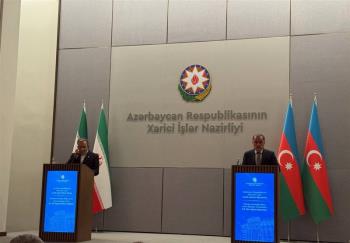Alwaght- Since Gamal Abdel-Nasser, who confronted the Israelis in the Six-day War and the War of Attrition, Egypt has seen the rise of four presidents: Anwar Sadat, Hosni Mubarak, Mohammad Morsi, and Abdul Fattah Al-Sisi and the fall of three—so far. While many began to compare Sisi to Abdel Nasser in 2013, it did not take long for the analogy to dissipate as forty-six years on, Egypt has failed to uphold Nasser’s ideals of social justice, Arab unity, and anti-imperialism.
First, there was Anwar Sadat, who signed a peace treaty with the Israeli regime following the 1978 Camp-David Accords which stipulated the normalization of ties with the Israelis. Then, Mubarak followed and worked to establish close ties with Washington and Tel Aviv. In 2012, Morsi sent a friendly letter to Israeli President Shimon Peres triggering a wave of anger among the Egyptian public.
Now, the sixth president of the Egyptian Arab Republic, following an army crackdown that ousted Morsi in 2013, Gen. Sisi is no different than his predecessors. In his latest controversial statement, Sisi commended Israeli Prime Minister Benjamin Netanyahu. Israeli newspaper Makor Rishon has claimed that Sisi appealed to leaders of US Jewish organisations by praising Netanyahu.
Sisi was quoted as saying that Netanyahu is “a leader who possesses great powers, which assist him not only to lead his country, but can also advance the region and the entire world.” This has stirred Egyptian public opinion, which maintains an anti-Israeli stance, unlike those in power.
Meanwhile, Stephen M. Greenberg, chairman of the Conference of Presidents of Major American Jewish Organizations, said that his meeting with Sisi was “eye opening.” He even reportedly said that Sisi expressed willingness to join a potential alliance between the Israeli regime, Greece, and Cyprus.
“The meeting with President Sisi, to me, was something I had never envisioned,” Greenberg added. “[Sisi] was overtly clear about the strong ties between Israel and Egypt.”
Israeli media have not fallen short of pointing to the continued cooperation between Cairo and Tel Aviv.
Yossi Melman wrote for Haaretz: “There is no room for doubt that after the rise of Gen. Abdel Fattah al-Sisi to power, political relations and security aid continued between Israel and Egypt at the highest levels.”
The Israeli Maariv newspaper, on the other hand, detailed the kind of collaboration that the two have maintained. “The Israeli aid includes handing over missiles to Egypt, in addition to intelligence and security information under (the) military security agencies –Aman. Shin Bet and Mossad’s leadership work with the Egyptian Army”.
Further engraving Egypt’s relationship with the Israeli regime into the minds of his people, Sisi has overseen the incorporation of history textbooks in Egyptian schools that will tackle the 1979 peace treaty for the first time.
Reportedly, the chapter dealing with this agreement will describe the two parties as “ending the state of war,” with “each side respecting the sovereignty and independence of the other side.”
The significance of this step lies in its inscription of the Camp David Accords and its results in the modern history of Egypt with no sign of intentions to scrap it. Instead, Sisi is affirming his commitment to the Egyptian-Israeli peace agreement.
The commitment, however, is not only verbal. Egyptian authorities have been clamping down on activities along the border of the Arab world’s most populous nation with the Gaza Strip. Last September, the Egyptian army destroyed 31 tunnels connecting the strip to the outside world, which are used to smuggle goods that are unavailable due to the Israeli-imposed blockade.
They also tightened restrictions on the Rafah border crossing, Gaza’s only doorway to the outside world, as part of a crackdown on Palestinian resistance movement Hamas, in coordination with the Israelis.
Yet in the eyes of everyday Egyptians, the Israeli regime remains an enemy. The Cairo-based Egyptian Center for Public Opinion Research published the results of its survey 2015 which found that Egyptians ranked the Israeli regime as the most hostile.
Without a president to suppress their frustrations over normalization of ties with the Zionist entity, many Egyptians would be capable of expressing their objection of this reality.
Following the resignation of then-President Mubarak, relations between Egypt and the Israeli regime reached an all-time low since 1979. Anti-Israeli sentiment surfaced in mass protests that flooded the streets of Giza. Thousands of protesters vent their anger by storming the Israeli embassy in Cairo.
“We must fight our way to victory on a sea of blood and a horizon of fire,” said Nasser in 1969. But the Nasserite days are long gone, and for Egypt, Pan-Arabism coupled with anti-imperialism stances are a thing of the past and will remain so as long as its leaders—Sisi being the latest example—preserve cordial relations with the Israeli regime.



























